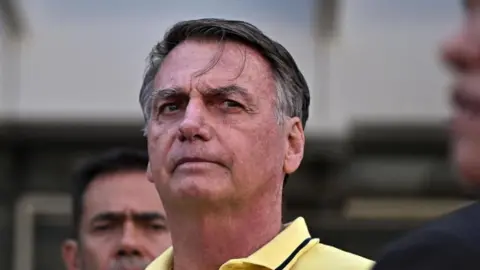Despite Musk's temporary position as a special government employee, his exit was anticipated. His tenure saw him initially pledge to cut federal spending significantly, a promise that underwent several revisions, leading to substantial workforce reductions impacting approximately 260,000 federal employees. Although some cuts faced judicial interventions, Musk framed his departure as a necessary step to redirect his focus toward his businesses amidst declining Tesla sales and amid controversy surrounding the effectiveness of Doge.
Musk’s experience in government brought about internal clashes with Trump's administration and external pushback in the form of protests and calls for boycotts against Tesla. As he refocuses on his entrepreneurial ventures, he also indicated intentions to scale back political contributions, reflecting a notable shift in priorities. While activists have escalated their efforts against Tesla, Musk remains committed to leading the company in the coming years, signaling that his influence on the public and private spheres will continue to intersect.
This ongoing saga raises questions about the future trajectory of Doge and Musk's business ventures as he navigates the overlap between innovation, governance, and public sentiment.
Musk’s experience in government brought about internal clashes with Trump's administration and external pushback in the form of protests and calls for boycotts against Tesla. As he refocuses on his entrepreneurial ventures, he also indicated intentions to scale back political contributions, reflecting a notable shift in priorities. While activists have escalated their efforts against Tesla, Musk remains committed to leading the company in the coming years, signaling that his influence on the public and private spheres will continue to intersect.
This ongoing saga raises questions about the future trajectory of Doge and Musk's business ventures as he navigates the overlap between innovation, governance, and public sentiment.




















